Intro
When I heard the word “MoBo,” I knew I wasn’t alone. I was on the Amtrak Hiawatha line to Milwaukee, set to join Modern Baseball for three tour dates in support of its third album, Holy Ghost. Behind me, two women compared notes about MoBo—fan shorthand for the band—reminiscing about other shows they’ve attended recently. After we arrived in Milwaukee, the fans—Toni Iacobelli, 21, and Hannah Spearman, 24—opened up about why they’d head to Wisconsin mid-week to see an indie-inspired pop-punk act. Their reasons go beyond mere musical appreciation. “Even today, there’s still a lot of stigma around mental health. I think Modern Baseball—as well as a lot of other bands in that genre—they kind of try to remove that stigma and talk about it,” Spearman told me.
Iacobelli sheepishly tried to hide scars scattered across her forearm when the topic came up. But she’s willing to chat—and that’s the point. “They make it okay to talk about those issues,” Iacobelli continued. “There’s a big stigma like, ‘Oh, you’re just feeling this way because you’re a teenager and you’re moody.’ But maybe you actually are depressed and need help.”
At a glance, it appears none of these comments have anything to do with Modern Baseball’s music. But listen to Holy Ghost and it’s clear that there’s a healing quality to its art. Fans flock to the band because the performances have become their version of therapy. Modern Baseball doesn’t just weave mental illness into its songs—the band has found ways to extend its compassion to its live shows. MoBo transforms rock clubs into safe spaces, opening a dialogue about struggles that would typically be consigned to subtext. If it sounds like Modern Baseball is a band with a cause, it is, but that was never part of the plan.

9
8
7
6
5
4
3
2
1
0
9
8
7
6
5
4
3
2
1
0
9
8
7
6
5
4
3
2
1
0
9
8
7
6
5
4
3
2
1
0
9
8
7
6
5
4
3
2
1
0
9
8
7
6
5
4
3
2
1
0
9
8
7
6
5
4
3
2
1
0
But MoBo didn’t just dominate streaming platforms. Its sophomore album, 2014’s You’re Gonna Miss It All, peaked at No. 97 on the Billboard charts—topping the vinyl charts—and became the bestselling record for its label, Boston’s Run For Cover Records.
But the band’s breakthrough almost ended as quickly as it began. After a year of touring in support of You’re Gonna Miss It All,Brendan Lukens
, one of the band’s vocalist-guitarists, posted on Facebook that Modern Baseball was canceling a run of Australian dates and all of its scheduled appearances at the U.K.’s premier music festivals, Reading and Leeds. Lukens cited his anxiety and depression in the post, but it wouldn’t be until the promotional cycle for Holy Ghost that fans would see just how dire his struggles became.

Brkendan Lukens
The 24-year-old guitarist-vocalist plays the role of "band dad" between episodes of Rick And Morty.
A short documentary, Tripping In The Dark, was released in the lead-up to Holy Ghost. In it, Lukens discloses that he’d climbed up to the roof of his home with plans to commit suicide. The revelation took fans by surprise, given Lukens’ outsize personality. He’s gregarious in interviews, always the first to crack a joke, and usually the first to laugh at it, too. Lukens claims that it wasn’t a profound realization that made him come down from the roof—just an innocuous text from his bandmateJake Ewald.
(It was “something really dumb, like a ClickHole article,” Lukens told Fader.) But Lukens and Ewald don’t read too much into this life-saving exchange. “I think if I thought about it too much I’d probably lose my mind,” Ewald told me. “I have a lot of moments where we’re onstage together where I’ll just look at him and think, ‘I’m really fucking glad that you’re still here.’”

Jake Ewald
The even-keeled guitarist-vocalist isn't prone to rash decisions, unless it means impulse-buying a PlayStation 4.
But even before Lukens’ near-suicide became public knowledge, it was clear that Holy Ghost would be a departure from Modern Baseball’s past output. The album was announced with a teaser video that showed the band members in isolation, with tight shots highlighting their introspection—only bassistIan Farmer
cracks a smile. The final image of the teaser shows Lukens laying down a vocal track as a tear cuts down the left side of his face.

Ian Farmer
The band's 23-year-old bassist and resident Simpsons expert isn't above climbing into a refrigerator after a show to cool off.
“It was kind of inevitable that this was going to be a thing,” Farmer said, when asked about how Modern Baseball became, somewhat inadvertently, the face of mental health awareness in the music world. In a matter of months, Modern Baseball evolved from the class clowns of the punk scene to become a band that’s changing the way live music is experienced. All by putting its fans first.

In a matter of months, Modern Baseball evolved from the class clowns of the punk scene to become a band that’s changing the way live music is experienced.
Part I
Stepping into Modern Baseball’s RV for the first time, I was greeted by the band and its crew half-dressed, wiping the sleep from their eyes, weathered by three weeks of touring. Even at this hour (early afternoon), jokes came spilling out of them. Vocalist-guitarist Ewald said he wishes he’d have memorized Jason Lee’s lines from Almost Famous so he could drop them into interviews. Farmer yelled out, “I’m only the fucking lead singer!” The bandmates chuckled as they threw on their T-shirts and prepared to load in equipment for their gig that night at The Rave in Milwaukee. Just before stepping out into the harsh afternoon sun, Lukens looked at me and, finding an affectation somewhere between a joke and a threat, said, “We’ve gotta watch Almost Famous with you.”


Inside The Rave—which also houses The Eagles Club—the backstage area offered the band limitless places to hide. There are multiple green rooms, each one lavishly furnished with ornate pillows and mood lighting—allegedly at the behest of Prince. But the main attraction is an indoor swimming pool that was drained long ago. It’s a dark, decrepit room. Graffiti lines the walls, and the only natural light trickles in from a remote pair of windows. There are rumors the place is haunted. This, of course, becomes the perfect place for Ewald to demo some new songs.

Pretty O.K.
Modern Baseball
On the set list that night were “Mass” and “Note To Self,” two songs from Ewald’s side of Holy Ghost that have taken on a new meaning for the singer, although it’s doubtful anyone in the crowd noticed. He used his half of the record in part to work through the death of his grandfather; you also hear him plunging into his budding relationship with photographer Jessica Flynn, who shot Holy Ghost’s cover photo. Two days before the start of the tour, that relationship came to an end, and even though Ewald plays “Mass” like he’s still aching to get back home to Flynn, the songs are outdated. It’s why he’s in that pool, demoing new songs and trying to convince Lukens to get back in the studio. Lukens, for his part, just shook his head at the thought, his laughter wrapping around both sides of his response: “No way, man.”
Before a show, you’re liable to find Ewald working on songs, reading Infinite Jest, or watching the other bands. He’s around. But it’s almost impossible to know where Lukens is or what he’s up to. Along with the band’s tour manager,Jake Overholt
—who everyone just calls Holt and who is referenced in a few Modern Baseball songs—Lukens carries much of the day’s burdens. Once he left the bus each day, I saw him only in flashes. During Ewald’s recording session he turned up poolside, wearing the bright blue basketball shorts he sported whenever he wasn’t onstage, cracking a joke and then disappearing again. It’s only when he’s onstage, or asleep in his bunk, that Lukens can be accounted for, and he seems to like it that way.

Jake Overholt
Known as "Holt," he's the band's tour manager, stagehand, and unseen fifth member.

Once they’re performing, the band members’ distinct personalities unify. They walked out to a tape playing “Holy Ghost” and dove right into “Wedding Singer,” Holy Ghost’s first single and the poppiest song in the band’s arsenal. The fans screamed in delight as the first notes rang out. Positioned on the side of the stage, I felt this roar nearly overtake the band, and not for the last time. When the band waltzed back onstage for its encore, it closed the show with “Your Graduation,” a song that’s a sing-along from top to bottom. Members of the opening act came up on stage as the song neared the bridge so Farmer can put down his bass and dance. DrummerSean Huber
stepped out from behind his kit and headed into the crowd to sing his part before the final chorus. Fans mobbed Huber, stretching to touch him as they screamed the words back in his face. The rest of Modern Baseball and its makeshift rhythm section hopped around, putting the band’s goofy side on display and hurtling the song toward a triumphant climax of chaos.

Sean Huber
The oldest MoBo member at 25, drummer Sean Huber loves penguins and Jimmy John's with seemingly equal fervor.
After the show, order was restored. Lukens was back on the RV strumming an acoustic guitar as members from the other bands popped in to talk with him. He never put the guitar down, shrugging off compliments from assorted well-wishers as he played. Someone asked him how he was doing; he barely opened his mouth to say that he was having a rough day. People asked if they can do anything to help lift his spirits, but he shrugged that off, too, focusing on his guitar as everyone laughed around him.
Lukens eventually loosened up when the band and crew fire up a video game. In a round of Rocket League—picture soccer played by monster trucks—that pitted Lukens and Farmer against a couple of their crew members, Lukens was immersed in the moment. He ribbed Farmer over his shoddy play, and for the first time, the day’s concerns were behind him. But the reprieve was fleeting. A member of the crew mentioned that fans were passing out in the crowd, and one even collapsed onto the merch table. The band then learned that there was no free water available, and attendees were forced to pay $5 for a bottle of water. With that, Lukens was back in action.
Farmer and Lukens paused the game to address Holt. “Kids shouldn’t be paying $5 for water when it’s this hot,” Farmer said. Moving forward, the band would ensure there was always free water available to fans at every show, but as Lukens later notes, it never crossed his mind that this would be a daily concern. “We were like, ‘Oh, shit. This isn’t just a thing that happens everywhere?’ This whole thing has definitely been a learning process.”

Again, here is the ## for our safe space hotline, we just want everyone to have a fun time :))) see y'all soon 💜👻💖 pic.twitter.com/jGUMIAfoXo
— Modern Baseball (@ModernBaseball) May 25, 2016
These ideas don’t exist in a vacuum. Many bands, such as the New York two-piece PWR BTTM, are implementing gender-neutral bathrooms, and the concept of safe spaces has been part of the underground house-show scene for some time. Yet Modern Baseball’s actions feel different, not just because of its high profile, but also because, as a band composed of straight, white men, MoBo is becoming a vocal ally to people that the music world has underserved for a long time. In general, these scenes haven’t been the most welcoming to women or people of color.
...as a band comprised of straight, white males, it’s becoming a vocal ally to people that the music world has long underserved—especially because it exists in scenes that have never been known for being particularly welcoming to women or people of color.
Despite their counterculture values, pop-punk and emo don’t have a great track record when it comes to progressive politics. In recent years, many people from this world—and plenty from the music industry in whole—have been rightly called out for their unacceptable behavior. Jake McElfresh, who operated under the name Front Porch Step, was sending explicit text messages to underage girls on Warped Tour, soliciting them for sex. The Story So Far, a band Modern Baseball toured with years back, was decried after a video surfaced of vocalist Parker Cannon kicking a young female fan off stage. The shame of these incidents is deepened by the reality that rape and sexual assault occur at large-scale music festivals with appalling regularity. And, until this tour, Modern Baseball shows weren’t an exception.
“We would hear horror stories from fans,” said Lukens. “The easier ones would be like, ‘I got kicked in the face.’ Then there’s the more intense ones like, ‘I put my drink down and now I’m feeling odd,’ or, ‘I was crowdsurfing and guys pulled me down and started groping me.’ We realized that it was as much on us, as it is on everyone else, to make everyone safe and make sure all these venues are safe and accommodating.” These new policies have not only added more work for Lukens and Holt, but they’ve led each member of the band to look inward and find ways to become better allies to the non-white, non-male people at their shows.

It’s a change that happened so fast, even members of Modern Baseball are surprised by it. “We’re not gonna do that.’ But then you realize it doesn’t have to be that.” Huber had grasped a larger trend: Bands are no longer in danger of being defined solely by their politics. In the past, bands that took stances akin to Modern Baseball’s would be decried—and worse, pigeonholed. Earlier in the decade, Olympia’s RVIVR would be subjected to people attending its shows solely with the intent to disrupt the proceedings.
The liberalization of live music is still a work in progress, though. Modern Baseball still meets with opposition to its new policies. Lukens has plenty of stories about venues pushing back on the gender-neutral bathrooms. “We had Philly promoters hit us up and be like, ‘Just wanted to let you know that there’s some old creeps in promoter groups talking shit about your band’ … Not all venues want to fuck with us,” he said. In some cases, venues would only create gender-neutral accommodations in single-occupancy bathrooms—which are often meant solely for staff, making them largely inaccessible to fans. And while Lukens acknowledges that their outreach efforts have been a challenge, he’s quick to note, “If it’s going to make our shows safer and better… then of course we’re going to continue to do it.”
The calls to the hotline go straight to Holt, and they’ve opened an unexpected new dialogue with their fans as well. Though the idea was to combat sexual harassment and assault at shows, the comments from fans came to shape what happened on stage. Lukens told me, “We had a few requests… to not use strobes in our light show”—strobes can trigger seizures—“which we thought was a really responsible and smart idea.” Though it’s a small change, it highlights the influence the fans can have with a direct line into the heart of MoBo. And while most bands would pat themselves on the back and call it a day, Modern Baseball knows it still needs to go further.


Part II
As the vocalist-guitarist of Thin Lips,Chrissy Tashjian
is the only queer woman on the Holy Ghost tour. Tashjian is a delight onstage, pouring every part of herself into the show, and proving that her “RIFF HARD” knuckle tattoos describe both her onstage presence and her personal ethos. “Modern Baseball are awesome allies,” Tashjian said, noting that the hotline and gender-neutral bathrooms made for a “much more comfortable time.” “Cis, straight dudes are in the most comfortable position in the world, and they don’t have to do this by any means. But I think it’s fucking amazing that they do.”

Chrissy Tashjian
The guitarist-vocalist of Thin Lips with the best knuckle tattoos on the entire tour package.
That respect goes both ways. Everyone in the Modern Baseball camp is quick to point out that, beyond fronting a great band, Tashjian has forced the tour’s headliners to think about themselves in a broader social context. “Talking to Chrissy, almost every night I’m learning,” Huber said. “I grew up in a town where I would say ‘fag’ because everyone else did, and I didn’t know any better. When we started touring, I felt like I was being really accepting of others when I really wasn’t. But no one told me.”
Huber recalled a time that Tashjian critiqued one of his tattoos, which depicts a Native American in a headdress. It’s the type of thing that make many people defensive, but Huber engaged with the dialogue. “To have her be like, ‘That tattoo is racist’—I didn’t know that. She’s just like, ‘It’s fine. You’re a good person.’ But the more we talk about it, the more it’s like, yeah, you can be a nice person but you can also be a bigot. Everyone’s trying to learn, and there’s always more you can learn. If nothing else, having her on this tour has been incredibly important for me, so I can only assume the crowds are having a similar revelation.”
Though Tashjian is the lone woman on the tour, Ewald hopes that won’t be the case in the future. “I can’t even imagine what it feels like to be a 16-year-old girl and love music and really want to play music—but go to a show and see four men on a stage, followed by four men on a stage, followed by four men on a stage. They have to think that the chance of becoming part of that feels so slim.”
Still, even though the band that play between Thin Lips and Modern Baseball is also composed solely of men, Joyce Manor isn’t known for letting boys be boys. Two years ago, the California pop-punk band—which crosses over into the world of hardcore thanks to its short, punchy songs—reignited the conversation around stage-diving. Vocalist-guitarist Barry Johnson would stop shows to grab people who tried to jump on the heads of those in the front row. Stage-diving presents a unique concern, as fans that congregate near the front of the stage—in Modern Baseball’s case, many of whom are young women—run the risk of having large, aggressive human beings land on them without warning.
I can’t even imagine what it feels like to be a 16-year-old girl and love music and really want to play music but go to a show and see four men on a stage followed by four men on a stage followed by four men on a stage. They have to think that the chance of becoming part of that feels so slim.
But the impact of Modern Baseball’s policies, and Tashjian’s performances, isn’t limited to the women in the crowd. Their inclusive attitude also reframes the concept of masculinity for young men, too. Tashjian remembered a “really adorable boy” who approached her after a show, “And he was like, ‘I never see women playing punk music. It was really cool to hear the perspective of a woman.’”

When the subject of masculinity came up, Ewald was emphatic. He pounded his hand on the counter of the coffee shop and said, “I could talk about this for hours.” It’s clear that, for each member of the band, these public initiatives reflect their personal concerns, and there’s no sign of it stopping. “Everything we did on this headlining tour we’ll be doing on tours in the future,” Lukens said.
On Tour: The Numbers


Part III
When the band rolled into The Ready Room in St. Louis the next day, it was even hotter than it was in Milwaukee. The temperature rested around 98 degrees, and with the sun beating down oppressively, it felt even hotter. Doors to The Ready Room wouldn’t open until 6 o’clock that evening, but when the band started loading in at 2:30, a line had already formed outside the venue. At the head of it were Lindsay Harper, 16, and Lauren Terrell, 15. They said it’s a habit of theirs to camp out early for shows, and as they sat under umbrellas in their foldable camping chairs, they looked like hardened veterans.
Their comments about the band echo the sentiments of the women I met on the Amtrak to Milwaukee. Terrell discussed some of Ewald’s lyrics in the song “Hiding,” which she said made her realize she wasn’t alone in her isolation. “A couple years ago I went through a stage where, even though I didn’t reach out to anyone, I felt like no one cared about me,” she said. “And hearing that, I was like, ‘I’m not the only one. I’m not the only one that feels like this.’”
It’s difficult for people of any age to be open about their struggles with mental health, but on Holy Ghost Ewald and Lukens don’t merely open themselves up; they encourage listeners to join them in the process. Harper noted that this open dialogue, along with the safe spaces, made her feel like Modern Baseball was reaching out on a personal level. “It’s just really cool to have them actually care about you,” Harper said.
Harper and Terrell asked if I could deliver a gift to the band. They handed over a gift bag that featured a unicorn jumping through a rainbow. It was just a collection of items they found at a dollar store, they said, but they wanted to give the band something anyway. Back on the bandwagon, I gave it to Lukens and he tore through it with glee. The contents included stickers; a magnet that Lukens immediately put on the bandwagon’s fridge; a pink feather boa; a coconut bikini top; and finally, a DVD copy of Michael Phelps: Greatest Olympic Champion: The Inside Story. As he pulled out each item, Lukens laughed or muttered, “Awesome.” He instructed Holt to add the boa and bikini top to the band’s stage setting that night.
 That night’s show was still swelteringly hot, but with an air-conditioned room, and a break in the set where Holt distributed a case of water to the crowd, bottle by bottle, it seemed to go by without incident. While the band was all business in Milwaukee—excluding the goofy version of “Your Graduation” played in the encore—St. Louis had a looser feel. The band cracked more jokes. Ewald and Farmer had a friend in the crowd; they slipped his name into one of the tracks. The kids didn’t get it—the band members were the only ones laughing—yet the spirit came across. It’s the kind of lighthearted set that Modern Baseball is known for, but with a bunch of songs with heavier subject matter in tow, it was easy to observe kids screaming the lyrics to one song alongside others with tears in their eyes—especially in the case of Lukens’ powerful set closer, “Just Another Face.” It's the song that closes Holy Ghost and sees Lukens coming out of treatment with a new lease on life. It's the sound of him finding his self-worth in song, and it appears to offer the same sense of discovery for countless others, too.
That night’s show was still swelteringly hot, but with an air-conditioned room, and a break in the set where Holt distributed a case of water to the crowd, bottle by bottle, it seemed to go by without incident. While the band was all business in Milwaukee—excluding the goofy version of “Your Graduation” played in the encore—St. Louis had a looser feel. The band cracked more jokes. Ewald and Farmer had a friend in the crowd; they slipped his name into one of the tracks. The kids didn’t get it—the band members were the only ones laughing—yet the spirit came across. It’s the kind of lighthearted set that Modern Baseball is known for, but with a bunch of songs with heavier subject matter in tow, it was easy to observe kids screaming the lyrics to one song alongside others with tears in their eyes—especially in the case of Lukens’ powerful set closer, “Just Another Face.” It's the song that closes Holy Ghost and sees Lukens coming out of treatment with a new lease on life. It's the sound of him finding his self-worth in song, and it appears to offer the same sense of discovery for countless others, too.Up against the barricade was a front line of young women, Harper and Terrell among them, who sang along to every song. As the show neared the end, Terrell came over the barricade and stood near the side of the stage. Once the band finished its encore—with another joyous rendition of “Your Graduation”—Lukens collected a few items, including his set list, and hand-delivered them to Terrell. They exchanged a few words and, as he turned to walk away, her face lit up. Her hopes were confirmed: Modern Baseball really does care about you.
It’s often difficult for people of any age to be open about their struggles with mental health, but the songs on Holy Ghost don’t just see Ewald and Lukens opening themselves up, it encourages listeners to join them in the process.
Part IV
At Bogart’s in Cincinnati the next day, fans were, again, lined up before Modern Baseball even arrived at the venue. This is the routine for MoBo shows, apparently. What’s different here was that, since Bogart’s has two entrances, this time there were two separate lines, each one wrapped around the street corner and nearly enveloping the entire block.
After soundcheck, three-fourths of Modern Baseball could be found lounging in the greenroom. Huber was trying to figure out if he had enough time for a run before the show, and also if there was a Jimmy John’s nearby—he plans each day’s jog so that he can stop and get a sandwich. Farmer fiddled with his phone and snacked from a veggie plate. Ewald nears the midway point of Infinite Jest. He acknowledges the clichéd absurdity in tackling the 1,079-page David Foster Wallace opus, but fresh off a breakup, and with plenty of downtime on tour, he welcomed the seemingly limitless distraction.
But just a room over, Lukens was hard at work. In four days, the band would be at The Crofoot in Pontiac, Michigan, and he was already fixated on it. He was trying to find a way to tie in that day’s Snapchat filter with a local food bank, but he was not sure if he could pull it off. He wore the same clothes for the third day in a row—a black Gnarwolves T-shirt and those blue basketball shorts. His hair was a mess. He kept running his hands through it as he worked on both his laptop and his phone. “Everything leading up to playing is way more stressful,” said Lukens, “but if that’s going to make everything better in the long run, fuck it.”
I had to leave before the show that night, and everyone seemed shocked by my sudden disappearance. It all went so fast, Ewald marveled, and then suddenly, it all came back to that first meeting in Milwaukee.

“I’m so bummed we didn’t watch Almost Famous with you,” said Lukens, and the rest of the band, assembled around the green room door, shared a laugh. I’m stepping out and Lukens stopped me: “Maybe next time?”

Listen